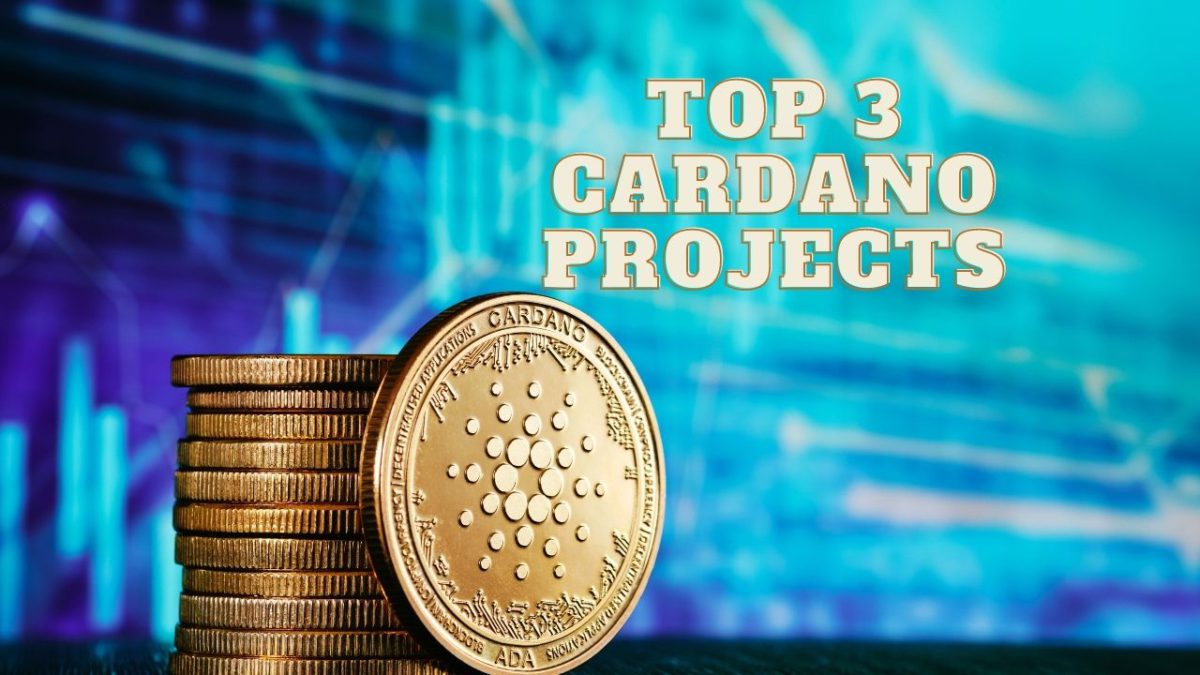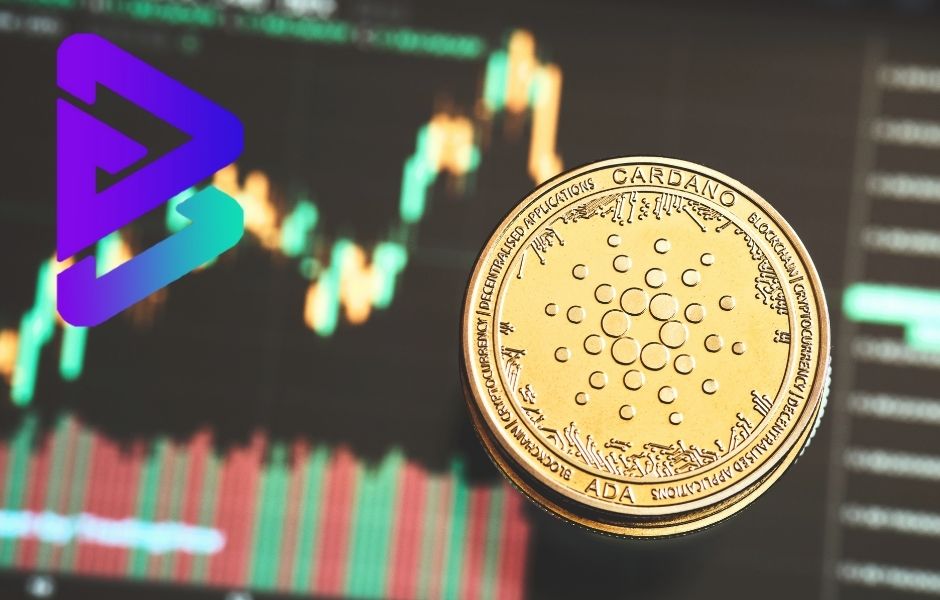Is DeFi A Good Investment: An Intriguing Dive Into Investment Potential In 2024
Decentralized finance (DeFi) has become a hot topic in the financial world. But is it a good investment for you? This guide will explore the world of DeFi, its potential benefits and drawbacks, and provide a step-by-step approach to navigating DeFi in 2024.
What is DeFi?
Traditional finance relies on intermediaries like banks to facilitate financial services like lending, borrowing, and investing. DeFi disrupts this model by leveraging blockchain technology to create a peer-to-peer financial system. Imagine a global, online marketplace where you can manage your finances without banks involved. That’s the core concept behind DeFi.
Benefits of DeFi Investing in 2024 and Beyond
Decentralized Finance (DeFi) has emerged as a revolutionary force in the financial landscape. By leveraging blockchain technology, DeFi offers a compelling alternative to traditional financial systems, unlocking a new frontier of financial inclusion, innovation, and potential benefits for investors. As we delve deeper into 2024 and beyond, let’s explore the multifaceted advantages DeFi presents for investors:
Democratization of Finance:
-
Permissionless Access: DeFi platforms operate on a permissionless basis. Unlike traditional institutions with limitations and gatekeepers, DeFi welcomes anyone with an internet connection and a crypto wallet. This fosters financial inclusion, empowering individuals from all corners of the globe to participate in the financial system, regardless of geographical location or credit history.
-
Borderless Transactions: DeFi transcends geographical boundaries. Transactions occur on a peer-to-peer basis, eliminating the need for intermediaries and hefty international transfer fees. This opens doors for seamless global financial interactions.
Transparency and Security:
-
Immutable Ledger: DeFi transactions are recorded on a blockchain, a secure and transparent distributed ledger. This immutability fosters trust and accountability, as all transactions are publicly viewable and verifiable.
-
Reduced Counterparty Risk: DeFi protocols automate transactions through the use of smart contracts, self-executing code that governs interactions between participants. This eliminates the need for intermediaries, reducing counterparty risk, the risk of one party failing to fulfill its obligations in a financial contract.
Enhanced Returns and Flexibility:
-
High-Yield Opportunities: DeFi protocols offer a variety of investment opportunities with the potential for high returns. These include lending, borrowing, and yield farming, where users can earn interest on their crypto holdings.
-
Flexible Investment Strategies: DeFi allows for a broader range of investment strategies. Investors can participate in fractional ownership of assets, automated portfolio management, and access to niche financial products not readily available in traditional markets.
Innovation and Disruption:
-
A Breeding Ground for Innovation: DeFi fosters a dynamic environment where new financial products and services are constantly emerging. This rapid innovation holds immense potential to reshape the financial landscape and redefine how we interact with money.
-
Disrupting Traditional Finance: DeFi has the potential to disrupt traditional financial institutions by offering more efficient, transparent, and accessible financial services. This can lead to increased competition and ultimately benefit consumers by driving down fees and improving overall financial services.
Ownership and Control:
-
Empowering Users: In DeFi, users retain full control over their assets. Unlike traditional systems where assets are held by custodians, DeFi allows users to manage their own crypto holdings through their wallets, fostering a sense of empowerment and financial independence.
-
Programmable Money: DeFi unlocks the potential of programmable money. Smart contracts enable the creation of financial instruments with pre-defined functionalities, offering new avenues for investment strategies and financial automation.
It’s important to acknowledge that DeFi investing also comes with inherent risks:
-
Market Volatility: The cryptocurrency market is inherently volatile, and DeFi products tied to this market can experience significant price swings. Investors must be prepared for potential losses.
-
Technological Complexity: DeFi can be complex for newcomers. Understanding underlying protocols, smart contracts, and DeFi applications requires research and a degree of technical literacy.
-
Security Vulnerabilities: Decentralized platforms can be susceptible to hacking and smart contract vulnerabilities. Investors must choose reputable DeFi protocols with a strong track record of security.
DeFi presents a spectrum of potential benefits for investors, offering a glimpse into a future of financial inclusion, innovation, and potentially high returns. However, careful consideration of the associated risks is crucial. By educating themselves, understanding the market, and approaching DeFi with caution, investors can navigate this new frontier and harness the potential benefits it offers. Remember, DeFi is a rapidly evolving landscape, and staying informed is paramount for navigating this exciting yet complex space.
Taking the Plunge: Important Considerations Before Diving into DeFi
The world of Decentralized Finance (DeFi) beckons with its promises of innovation, high yields, and a break from traditional financial constraints. However, before diving headfirst into this exciting new frontier, careful consideration is crucial. Here’s a deep dive into the essential factors you need to understand before venturing into DeFi:
Understanding the Basics:
-
Blockchain Technology: DeFi is built on blockchain technology, a distributed ledger system that offers transparency and security. Familiarize yourself with core blockchain concepts like decentralization, smart contracts, and public vs private blockchains.
-
Cryptocurrency Fundamentals: DeFi is intertwined with the cryptocurrency ecosystem. Gain a solid understanding of cryptocurrencies, how they work, and the inherent volatility associated with them.
Risk Assessment:
-
Market Volatility: The cryptocurrency market is known for its wild swings. DeFi products tied to crypto assets inherit this volatility, potentially leading to significant price fluctuations and even complete loss of invested capital. Be prepared for a rollercoaster ride and only invest what you can afford to lose.
-
Smart Contract Risks: DeFi applications rely on smart contracts, self-executing code that governs interactions. These contracts, however, can be susceptible to bugs and vulnerabilities that could lead to hacks or unexpected outcomes. Only participate in DeFi protocols with a proven track record of security and undergo thorough audits.
-
Rug Pulls and Scams: DeFi, being a relatively new space, attracts bad actors. Rug pulls, where developers abandon a project after raising funds, and other scams are unfortunately present. Be wary of unrealistic promises and conduct thorough research before investing in any DeFi project.
Understanding DeFi Products:
-
DeFi Lending and Borrowing: DeFi platforms allow users to lend and borrow cryptocurrencies, often at attractive interest rates. However, understand the interest rate fluctuations and potential for collateral liquidation in case of price drops.
-
Yield Farming: This strategy involves locking up your crypto assets in a DeFi protocol to earn rewards. While potentially lucrative, impermanent loss, a situation where the value of your underlying assets falls relative to the reward token, can occur.
-
Decentralized Exchanges (DEXs): These platforms enable peer-to-peer trading of cryptocurrencies without intermediaries. While offering greater control, DEXs can have lower liquidity compared to centralized exchanges, potentially impacting trade execution.
Security Considerations:
-
Self-Custody Wallets: DeFi emphasizes self-custody, meaning you hold the private keys to your crypto assets. Invest in a secure hardware wallet and understand the importance of keeping your private keys confidential.
-
Beware of Phishing Attacks: DeFi scams often involve phishing emails or websites designed to steal your private keys. Never share your private keys with anyone and be cautious of unsolicited investment offers.
-
Research and Due Diligence: Before interacting with any DeFi protocol, conduct thorough research. Look into the project’s team, roadmap, security audits, and community sentiment. Only invest in reputable and well-established DeFi projects.
Building a DeFi Strategy:
-
Define Your Goals: Are you seeking high yields, long-term investment opportunities, or simply exploring the DeFi space? Clearly define your goals to guide your investment decisions.
-
Start Small: DeFi can be complex. Begin with a small investment to familiarize yourself with the ecosystem before committing larger sums.
-
Diversify Your Portfolio: Don’t put all your eggs in one basket. Spread your investments across different DeFi protocols and asset classes to mitigate risk.
Staying Informed:
-
Community Engagement: Join DeFi communities, forums, and social media groups to stay updated on the latest developments, trends, and potential risks within the DeFi space.
-
Follow Reputable Sources: Rely on trusted news outlets, research reports, and educational resources from established DeFi players to stay informed about the ever-evolving DeFi landscape.
DeFi offers a glimpse into a future of financial innovation and empowerment. However, it’s not without its risks. By carefully considering these factors, educating yourself, and approaching DeFi with a cautious and measured strategy, you can navigate this exciting new frontier and potentially reap its benefits. Remember, DeFi is a marathon, not a sprint. Take your time, learn as you go, and prioritize the security of your hard-earned capital.
Is DeFi the Promised Land? Unveiling if Decentralized Finance Aligns with Your Investment Goals
Decentralized Finance (DeFi) has captured the imagination of many with its promises of disruption, innovation, and potentially high returns. But before you jump on the DeFi bandwagon, it’s crucial to assess if it aligns with your risk tolerance, investment goals, and overall financial profile. Here’s a comprehensive guide to help you determine if DeFi is the right fit for you:
Understanding Your Risk Tolerance:
-
Are You Comfortable with Volatility? DeFi products are inherently tied to the cryptocurrency market, renowned for its wild price swings. If you have a low tolerance for risk and sleepless nights over market fluctuations, DeFi might not be the best fit.
-
Can You Handle Potential Losses? DeFi investments are not guaranteed. Smart contract bugs, rug pulls, and unexpected market downturns can lead to significant losses. Be honest with yourself about your ability to withstand potential financial setbacks.
-
Long-Term Vision vs. Short-Term Gains: DeFi can offer lucrative opportunities, but they often come with a long-term investment horizon. If you’re seeking quick profits, DeFi might not be the ideal avenue. Consider your investment timeframe and align your DeFi strategy accordingly.
Evaluating Your Investment Goals:
-
Are You Seeking High Yields? DeFi boasts the potential for high returns through yield farming, lending, and other strategies. However, understand the inherent risks associated with these strategies and the impermanent loss that can occur.
-
Do You Want to Diversify Your Portfolio? DeFi offers a new asset class to diversify your investment portfolio. Consider how DeFi complements your existing holdings and how much exposure you want to this dynamic but volatile market.
-
Are You Passionate About Innovation? DeFi represents the cutting edge of financial technology. If you’re drawn to innovation and being part of a revolutionary movement, DeFi might be an exciting space to explore.
Assessing Your Financial Situation:
-
Emergency Fund in Place? DeFi investments should never come at the expense of your financial security. Ensure you have a healthy emergency fund established before allocating funds to DeFi.
-
Debt Management: Outstanding debts, especially high-interest ones, can quickly erode any potential DeFi gains. Focus on paying down debt before venturing into DeFi.
-
Investment Budget Clarity: Clearly define how much capital you can comfortably allocate to DeFi. Remember, DeFi is not an all-or-nothing proposition. Start small and scale up gradually as you gain experience and confidence.
Exploring Your Technical Savvy:
-
Comfort Level with Technology: DeFi can be complex, requiring an understanding of blockchain technology, cryptocurrencies, and DeFi protocols. If you’re not comfortable with navigating this technical landscape, DeFi might require a steeper learning curve.
-
Self-Custody Confidence: DeFi emphasizes self-custody of your crypto assets. Are you comfortable managing your own private keys and securing your digital assets with hardware wallets?
-
Research Capacity: DeFi demands ongoing research to stay informed about new protocols, potential risks, and evolving market trends. Are you prepared to dedicate time to continuous learning and staying updated within the DeFi ecosystem?
DeFi presents a spectrum of opportunities, but it’s not a one-size-fits-all solution. By honestly evaluating your risk tolerance, investment goals, financial situation, and technical comfort level, you can make an informed decision about whether DeFi is the right addition to your financial portfolio. Remember, DeFi is a marathon, not a sprint. Start cautiously, prioritize education, and prioritize the security of your assets. With a measured approach and a thirst for knowledge, DeFi can be a rewarding frontier to explore.
A Step-by-Step Guide to Getting Started with DeFi in 2024
Intrigued by the possibilities of Decentralized Finance (DeFi)? Here’s a step-by-step guide to help you navigate your initial foray into this exciting new frontier:
1. Gear Up: Tools and Technology
-
Crypto Wallet: Your gateway to DeFi. Choose a reputable, secure wallet that supports the DeFi protocols you plan to use. Popular options include MetaMask, Trust Wallet, and Trezor (hardware wallet).
-
Crypto Exchange: Fund your DeFi journey. Acquire some cryptocurrency (ETH is commonly used) through a trusted exchange like Coinbase or Binance.
-
Research Resources: Educate yourself! Utilize online resources like DeFi Pulse, CoinGecko, and educational platforms to understand DeFi concepts, protocols, and potential risks.
2. Dive In: Choosing Your DeFi Platform
-
Identify Your Goals: Are you seeking high yields, borrowing power, or simply exploring DeFi? Different platforms cater to diverse needs.
-
Start Simple: Begin with established DeFi protocols with a proven track record. Popular options include Aave (lending/borrowing), Compound (lending/borrowing), and Uniswap (decentralized exchange).
-
Read the Fine Print: Before interacting with any DeFi protocol, thoroughly research and understand their documentation, smart contract audits, and associated fees.
3. Connect and Transact: Your First Steps
-
Connect Your Wallet: Link your chosen DeFi wallet to the DeFi platform you want to interact with. Follow the platform’s specific instructions for a seamless connection.
-
Fund Your DeFi Activity: Transfer the necessary cryptocurrency from your exchange to your DeFi wallet to participate in DeFi activities like lending, borrowing, or swapping tokens.
-
Start Small: For your first transactions, begin with a small amount to familiarize yourself with the platform and DeFi mechanics before committing larger sums.
4. Security First: Protecting Your Assets
-
Self-Custody Responsibility: Remember, you hold the private keys to your DeFi assets. Store them securely, ideally using a hardware wallet, and never share them with anyone.
-
Beware of Phishing Attacks: DeFi scams are prevalent. Be cautious of unsolicited emails, messages, or websites attempting to steal your private keys. Only interact with trusted DeFi platforms.
-
Stay Informed: Keep yourself updated on potential vulnerabilities and exploits within the DeFi space. Follow reputable sources and participate in DeFi communities for the latest security information.
5. Building Your DeFi Journey
-
Monitor and Manage: Regularly monitor your DeFi activity and adjust your strategies as needed. DeFi is dynamic, so stay informed about market conditions and protocol updates.
-
Expand Gradually: As you gain experience and confidence, you can explore more complex DeFi products and strategies. Remember, diversification is key to mitigating risk.
-
Stay Curious: DeFi is constantly evolving. Embrace continuous learning to stay ahead of the curve and navigate this exciting new financial landscape.
Also, read – Top 10 Shocking Reasons Bridging Hacks Are Putting The Future Of DeFi At Risk
The Future of DeFi: A Glimpse Ahead
DeFi holds immense potential to reshape the financial landscape. Here are some exciting possibilities on the horizon:
-
Enhanced Accessibility: DeFi can empower the underbanked and those in underserved regions by providing financial services without geographical limitations.
-
Innovation and Efficiency: DeFi fosters a breeding ground for innovation, potentially leading to more efficient and user-friendly financial products and services.
-
Disruption of Traditional Finance: DeFi has the potential to disrupt traditional financial institutions by offering more competitive interest rates, lower fees, and greater control to users.
-
Regulatory Landscape: As DeFi matures, regulations are likely to evolve to ensure consumer protection and financial stability.
Remember, DeFi is a rapidly evolving space. This guide equips you with the foundational knowledge to take your first steps. Approach DeFi with caution, prioritize education, and prioritize the security of your assets. Welcome to the exciting world of Decentralized Finance!
Stay informed with daily updates from Blockchain Magazine on Google News. Click here to follow us and mark as favorite: [Blockchain Magazine on Google News].
Get Blockchain Insights In Inbox
Stay ahead of the curve with expert analysis and market updates.
latest from tech
Disclaimer: Any post shared by a third-party agency are sponsored and Blockchain Magazine has no views on any such posts. The views and opinions expressed in this post are those of the clients and do not necessarily reflect the official policy or position of Blockchain Magazine. The information provided in this post is for informational purposes only and should not be considered as financial, investment, or professional advice. Blockchain Magazine does not endorse or promote any specific products, services, or companies mentioned in this posts. Readers are encouraged to conduct their own research and consult with a qualified professional before making any financial decisions. The featured image used is just a creative depiction of the title and it does not intend to hurt sentiments of any person or institution. If it hurts anyone sentiments, please do not hesitate to reach out to Blockchain Magazine.

 Bitcoin
Bitcoin  Ethereum
Ethereum  XRP
XRP  Tether
Tether  Solana
Solana  Dogecoin
Dogecoin  USDC
USDC  Cardano
Cardano  Lido Staked Ether
Lido Staked Ether  TRON
TRON  Chainlink
Chainlink  Avalanche
Avalanche  Wrapped stETH
Wrapped stETH  Wrapped Bitcoin
Wrapped Bitcoin  Sui
Sui  Stellar
Stellar  Toncoin
Toncoin  Hedera
Hedera  Shiba Inu
Shiba Inu  WETH
WETH  Polkadot
Polkadot  LEO Token
LEO Token  Bitget Token
Bitget Token  Litecoin
Litecoin  Bitcoin Cash
Bitcoin Cash  Uniswap
Uniswap  Hyperliquid
Hyperliquid  Official Trump
Official Trump  USDS
USDS  Wrapped eETH
Wrapped eETH  Pepe
Pepe  NEAR Protocol
NEAR Protocol  Ethena USDe
Ethena USDe  Aave
Aave  Aptos
Aptos  Internet Computer
Internet Computer  Ondo
Ondo  Ethereum Classic
Ethereum Classic  WhiteBIT Coin
WhiteBIT Coin  Monero
Monero  Mantle
Mantle  POL (ex-MATIC)
POL (ex-MATIC)  Cronos
Cronos  Render
Render  Dai
Dai  MANTRA
MANTRA  Layer One X
Layer One X  Algorand
Algorand 




